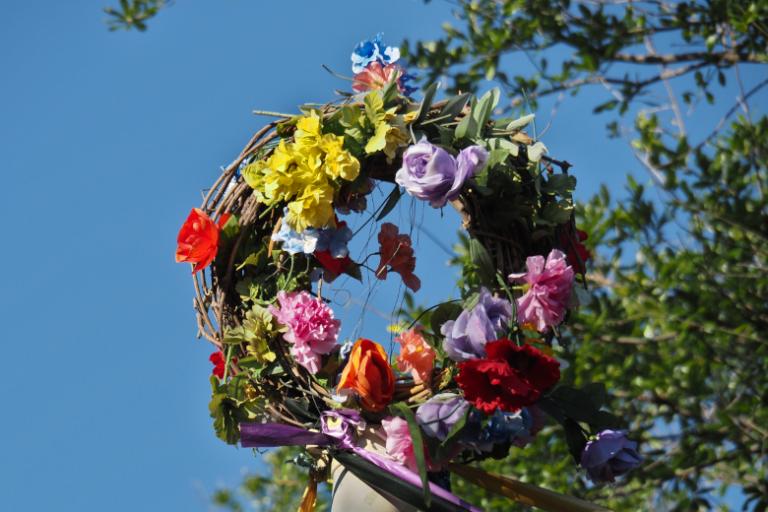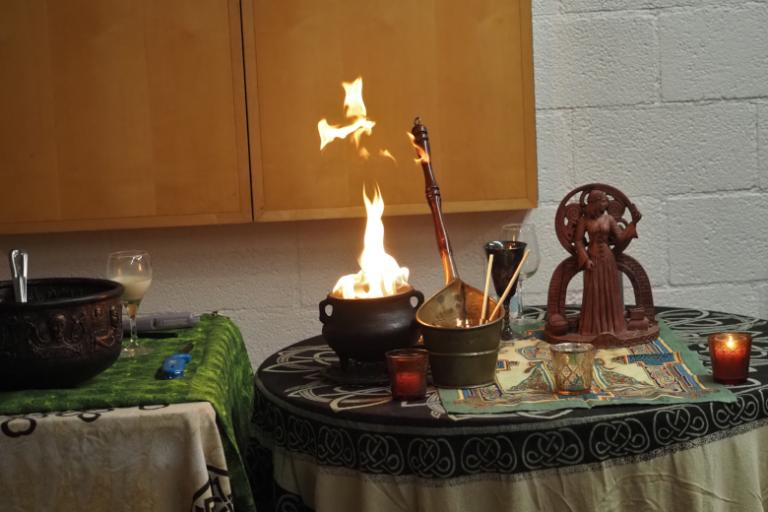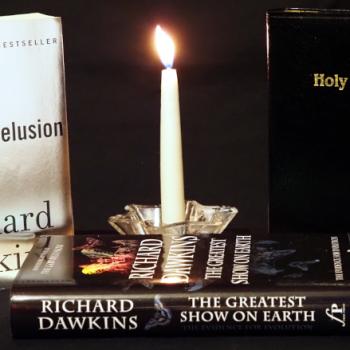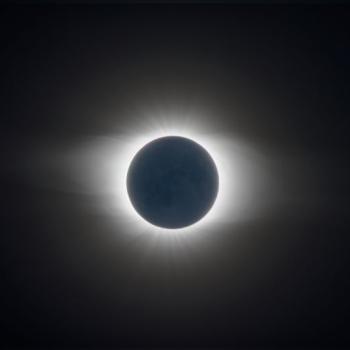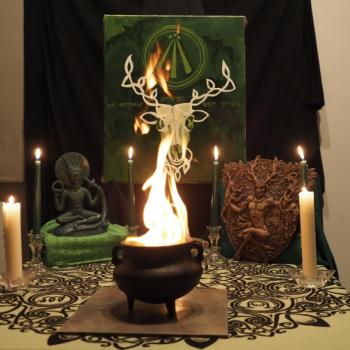Historian Francis Young had a very good piece on his Substack last week titled The Crisis of Ritual. In it, he uses “the archaeologist’s stereotyped use of ‘ritual’ as a catch-all label for the unexplained” as a lead-in to the fact that while ritual is clearly important to us as humans, we don’t understand it all that well, and its practice has diminished since the latter part of the 20th century. I encourage you to read Dr. Young’s essay, but read it carefully – this is not a piece that lends itself to skimming.
I love ritual – I always have. One of the many problems I had growing up in a small rural Baptist church was the lack of ritual. Anything other than “preachin’ praying’ and singin’” was derided as “Godless ritual” – which usually meant “too much like what the Catholics do.” They recognized no sacraments and only two “ordinances” – baptism and what they called not the Eucharist or Holy Communion but “the Lord’s Supper.” And they only did that once every three months.
I sometimes wonder what would have happened if I had grown up in a church that was both highly liturgical and non-fundamentalist. Would I have become a mystical Episcopalian instead of a Pagan? Maybe, but I tend to doubt it…
In any case, I think Dr. Young is correct both with his concern about the diminishment of ritual in contemporary culture, and with his confidence that “ritual is one of the most important of all human creations” and will always be with us in one form or another.
We are contributing to this continuity.
We’re Pagans – we do ritual.
What is ritual?
Coincidentally (or more likely, not) a few days before Dr. Young’s essay was published, longtime Under the Ancient Oaks commenter MadGastronomer asked if I had a definition of ritual. For all that I’ve written about ritual over the years I don’t think I’ve ever defined it.
Google says ritual is “a religious or solemn ceremony consisting of a series of actions performed according to a prescribed order.” That’s part of it, but I don’t think that’s enough. The Wikipedia page on ritual has some useful explanations and examples.
My best working definition of ritual is “symbolic actions done to create a spiritual effect, especially to form, maintain, and transform relationships.” Those relationships can be between members of a community, between the living and the dead, or between humans and Gods or other spirits. For example, a funeral is a ritual designed to strengthen the bonds of a community during a time of grief, but also to transform the relationship of the deceased within the community.
Last year I watched the coronation of King Charles III. This ritual did not make him king. By law he became king on the death of Queen Elizabeth II. The ritual proclaimed loudly and visibly that Charles IS king.
Sometimes the goal of a ritual is more tangible, such as with magical rituals intended to create change in conformance with will.
I think back to my first Pagan group initiation. I had already been a Pagan in name for ten years and in serious practice for two years. But during that ritual, something within me changed. Was this simply confirmation of what I had already done? Or did it create a tangible change? I don’t now.
I know this much – the ritual worked. I’ve never questioned my Pagan identity since.
Ritual communicates through all the senses
OK, so that’s what ritual does. But how does it work?
From a naturalistic perspective, ritual works by speaking to our senses. A typical Protestant church service focuses on the sermon – it communicates through hearing. But a good ritual also communicates visually and through touch and taste and smell. Many Pagan rituals have candles and incense, wine and bread or cakes and ale.
The best Pagan rituals are embodied – we experience them through our bodies. We dance the Maypole or the Spiral Dance. We bend down and touch the Earth, we reach up and touch the sky. We pick up a stone, see its color and feel its texture.
The best part about embodied rituals is that they’re participative. We’re not sitting passively waiting for something to happen. We’re actively helping to make something happen.
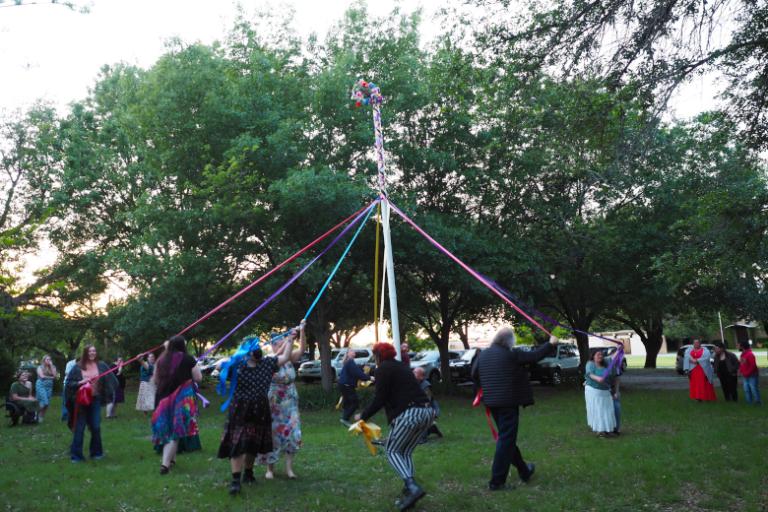
Ritual communicates symbolically
Words speak to the conscious mind. Symbols speak to the subconscious mind.
We know this from our spellcrafting. We need money, so we burn a green candle during the waxing moon. Whatever that spell may do in the world of spirit, it sends images of growth and abundance to our subconscious mind, which moves us to do the kinds of things and be in the kinds of places where we can obtain more money.
Our conscious minds like to think they’re in charge, but it’s our subconscious that’s running the show most of the time. The subconscious will pick up images and details the conscious mind overlooks.
Ritual puts us in a sacred state of mind
I’ve been inside the passage tomb of Newgrange on three occasions. Once you’re inside the feeling is unmistakable – this is a sacred place. I’ve had similar feelings inside some of the cathedrals of Europe, even though they’re temples to a God who is not my own. Walking into a sacred place puts you in a sacred state of mind – you’re focused on the sacred, the holy, the magical.
And because you’re focused on it, you’re more likely to experience it.
I don’t have a passage tomb or a stone circle in my back yard. There is no Pagan temple in my city, nor is there likely to be one any time soon. But good ritual can make up for that.
Sometimes it’s a question of decorations – of making an ordinary space look and feel extraordinary. Other times, though, it’s the ritual itself that makes the difference. Dim the lights, light the candles, start the drums, have someone recite a powerful invocation. The ritual actions let you know you’re not in Kansas anymore.
And that prepares you for what’s to come.
The heart of modern Pagan ritual
Pagans call our seasonal observances many things. Denton CUUPS is calling our upcoming Spring Equinox event a “celebration.” But our brief announcement includes these words: “Gathering begins at 7:00 PM – Ritual begins promptly at 7:30 PM.”
We say this every time. Not just to let people know we do not run on Pagan Standard Time, but also to let them know to expect a ritual: symbolic actions done to create a spiritual effect.
We establish a mystical center from which to work, and then join together with a grounding meditation. We reaffirm our sacred relationships with our Gods, ancestors, the spirits of place, and the Fair Folk (honoring the Fair Folk in ritual is not typical for most Pagans, but we do it because we can’t not do it).
And with that done, we do our main working: worshipping our Gods, working magic, or just celebrating the turning seasons. We share food and drink as a way to receive the blessings of the Gods, and to reground ourselves in the ordinary world.
When that’s over, we thank our spiritual guests, unwind our circle, and end with parting words.
What does all that accomplish? It lets people be a part of a community, even if only for an hour. It connects them to something greater than themselves. And sometimes it can be truly transformative.
We’re Pagans – we do ritual
I understand why Dr. Young is concerned about ritual in our contemporary world. At least in this country, Christianity is increasingly dominated not just by Protestants but by Evangelicals who, like the Baptists of my childhood, put no stock in ritual. For them it’s all about “preaching the word” (which too often is more about Christian Nationalism than about Jesus) and about worship as entertainment. Atheists see no benefits from ritual, and certainly no spiritual benefits. And the “nones” (for “none of the above”) have little interest in building the kinds of communities it takes to create and present deep meaningful rituals.
Solitary rituals can be good things – a few years ago I wrote a series of them for the Wheel of the Year. If there are no good Pagan groups near you, I encourage you to do your own rituals. But as fellow Denton Pagan leader Cynthia Talbot likes to say “you can’t dance a Spiral Dance by yourself.”
Still, we are humans and humans have an inherent need for ritual. Just as the “nones” are reinventing religion to meet their needs without being tied to beliefs and practices that belong in another era, we will invent and reinvent rituals that are meaningful and helpful to us, here and now.
As Pagans, we have a head start on that.
We’re Pagans – we do ritual.
For further reading
I’ve written a lot about ritual over the years. A listing of everything tagged with “ritual” can be found at this link.
Here are some of the more popular (and in my opinion, most important) posts on ritual:
What’s All This Ritual For, Anyway? (February 2023)
4 Necessary Elements of Group Ritual (February 2022)
The Evolution of My Pagan Ritual Liturgy (May 2020)
8 Essential Elements of Good Pagan Ritual (October 2019)
“I Didn’t Expect It To Be So Real” – The Power of Good Public Rituals (May 2019)


